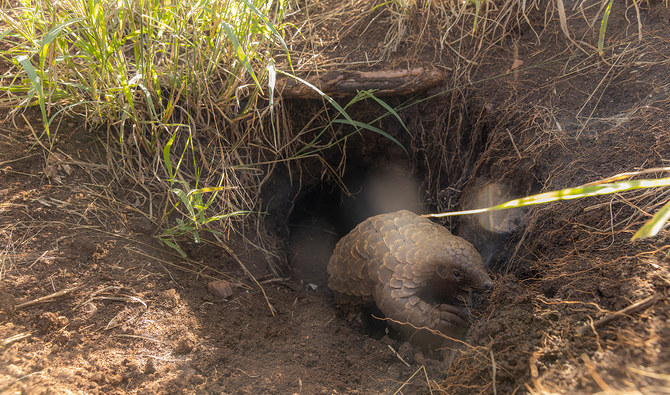ISLAMABAD: Pakistan has witnessed an 80 percent decline of its critically endangered pangolin population due to excessive poaching, hunting, and illegal trafficking, wildlife experts said according to a report by the state-run Associated Press of Pakistan (APP) on Thursday.
According to the World Wide Fund for Nature (WWF-Pakistan), pangolins are a unique species that play a critical role in maintaining healthy ecosystems by consuming insects and serving as natural pest controllers. However, they are illegally traded to several countries where people either consume their meat or use their scales to make medicines, leading to a sharp decline in their population from across the globe, making them critically endangered.
The WWF-Pakistan started the “Saving the Pangolins of Pakistan Project” in 2016 and engaged the customs department and United Nations Office on Drugs and Crime (UNODC) to contain the animal’s illegal trade. Their capture and illegal trafficking, however, continued.
“Experts on Wednesday briefed media persons that almost 80 percent population of the critically endangered Pangolin species had declined in the country due to excessive poaching, hunting and illicit trafficking that should be protected and owned by the community as its most precious asset,” the report said.
Muhammad Waseem, a conservationist from WWF-Pakistan, said Pangolin’s poaching is basically for illegal wildlife trade intended to provide the anteater’s meat as a delicacy while its scales are used to make traditional medicines and resistant material for bulletproof vests.
“[There are] some eight species of pangolin spread across Asia and Africa and all of them are endangered due to their indiscriminate poaching and hunting,” he added.
Waseem regretted that there were “illogical myths” associated with the anteater, one of which was that it eats human corpses. He said such unfounded beliefs significantly contributed to the animals’ declining population.
The official demanded the media spread awareness about the issue and urged communities to protect and own the animal as a “precious asset.”
He further said that WWF-Pakistan had identified pangolin protection zones in different parts of the country and six of them were provided with a safe environment along with empowered and trained wildlife staff to ensure their protection.
















